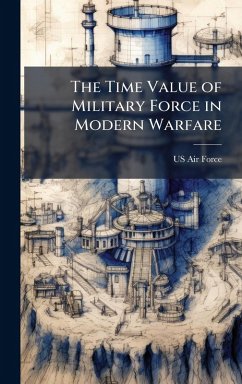This study seeks to answer the question, "How can airpower help resolve time-induced tensions between political and military imperatives in the conduct of modern warfare?" To answer this question, the study begins by exploring time in the theory of war with an emphasis on time as a fourth dimension that provides a distinct perspective on warfare. With concepts gleaned from theory, this study analyzes the Arab-Israeli War of 1967, the Falklands War, and the Gulf War to determine the role airpower played in overcoming time conflicts and achieving political-military congruence. The study concludes that a time-based strategy was the mechanism through which airpower worked to resolve time-induced tensions between political and military imperatives. A time-based strategy is defined as one in which time is a paramount or extremely significant consideration. Such a strategy seeks to overcome time-induced tensions and achieve political-military congruence by employing forces and forms of military power with an appreciation of their abilities to contribute to this resolution and congruence. A time-based strategy also weighs operational risks and benefits with the goal of balancing them to achieve the greatest time benefit at the lowest risk. In addition to revealing a time-based strategy as the mechanism for overcoming time conflicts between political and military imperatives, the evidence also points to the prominence of airpower's role in that strategy. This link between time-based strategies and airpower has important implications for both the airpower theorist and the airpower strategist. This work has been selected by scholars as being culturally important, and is part of the knowledge base of civilization as we know it. This work was reproduced from the original artifact, and remains as true to the original work as possible. Therefore, you will see the original copyright references, library stamps (as most of these works have been housed in our most important libraries around the world), and other notations in the work. This work is in the public domain in the United States of America, and possibly other nations. Within the United States, you may freely copy and distribute this work, as no entity (individual or corporate) has a copyright on the body of the work. As a reproduction of a historical artifact, this work may contain missing or blurred pages, poor pictures, errant marks, etc. Scholars believe, and we concur, that this work is important enough to be preserved, reproduced, and made generally available to the public. We appreciate your support of the preservation process, and thank you for being an important part of keeping this knowledge alive and relevant.
Bitte wählen Sie Ihr Anliegen aus.
Rechnungen
Retourenschein anfordern
Bestellstatus
Storno








